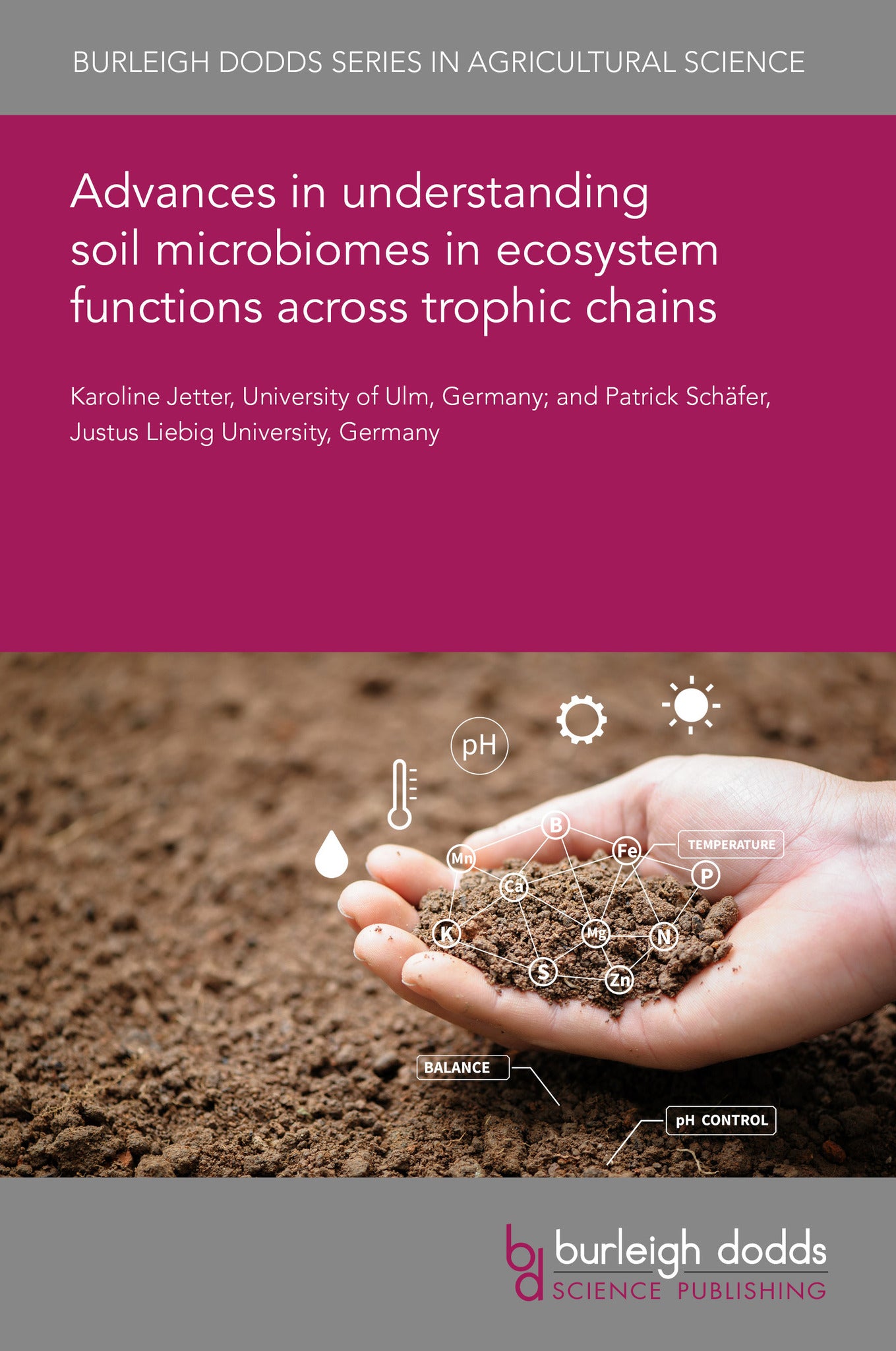We're sorry. An error has occurred
Please cancel or retry.
Advances in understanding soil microbiomes in ecosystem functions across trophic chains

Some error occured while loading the Quick View. Please close the Quick View and try reloading the page.
Couldn't load pickup availability
- Format:
-
29 May 2025

Soil is an essential part in every terrestrial ecosystem and soil microbes are contributing to several ecosystem functions. Different abiotic and biotic factors impact soil microbiomes and a disturbance of soil microbial communities can have severe consequences for soil health and its ecosystem functions. In this chapter the authors discuss different abiotic stressors related to climatic conditions and agricultural land use and their effects on soil microbial diversity. They highlight the role of soil microbiomes in ecosystem functioning represented by the interaction with plants resulting in plant growth promotion and higher stress tolerance. Soil microbiomes and their ecosystem functions play a pivotal role for a healthy environment and with that for healthy humans and animals within the framework of the One Health concept. To understand this role of soil microbiomes, they present experimental setups to investigate ecosystem services and functions in natural systems or in a lab environment.

TECHNOLOGY & ENGINEERING / Agriculture / Agronomy / Soil Science, Soil science and management, TECHNOLOGY & ENGINEERING / Agriculture / Agronomy / Crop Science, TECHNOLOGY & ENGINEERING / Agriculture / Sustainable Agriculture, Sustainable agriculture, Agronomy and crop production

- 1 Introduction
- 2 Ecosystems in the One Health concept
- 3 Impact of abiotic factors on soil microbiomes
- 4 Impact of agricultural land use on soil microbiomes
- 5 Microbial communities in ecosystem functioning: plantsoil interaction
- 6 Soil microbiomes and ecosystem function
- 7 Systems to study ecosystem services across trophic chains in a controlled environment: mesocosms
- 8 Conclusion
- 9 Where to look for further information
- 10 References



